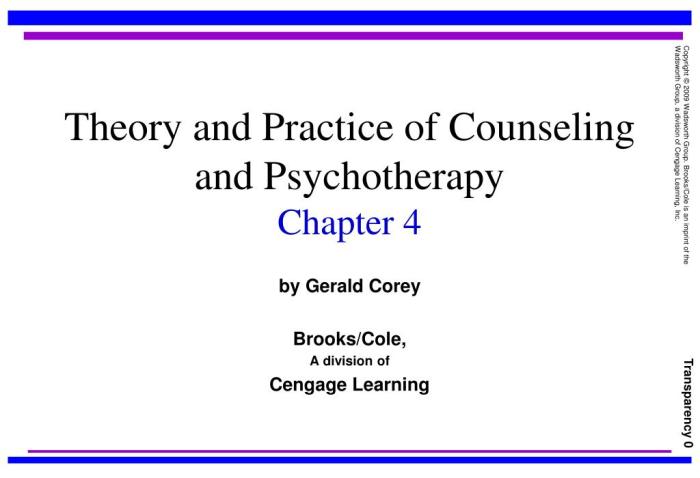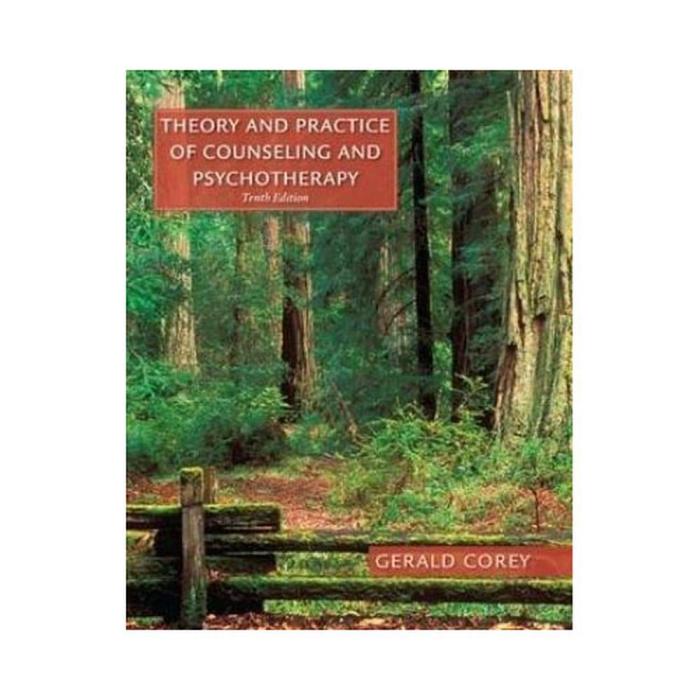Theory and practice of counseling and psychotherapy 10th edition – Welcome to the tenth edition of Theory and Practice of Counseling and Psychotherapy, the definitive guide to the field. This comprehensive volume provides a thorough exploration of the historical foundations, ethical considerations, counseling theories and techniques, psychotherapy interventions, multicultural issues, professional development, research, and emerging trends in the field.
With a focus on the latest research and best practices, this book is an essential resource for students, practitioners, and anyone interested in the field of counseling and psychotherapy.
Historical Foundations of Counseling and Psychotherapy: Theory And Practice Of Counseling And Psychotherapy 10th Edition

Counseling and psychotherapy have a rich history, with roots in ancient civilizations and philosophical traditions. The field has evolved over centuries, influenced by key figures and schools of thought that have shaped its theories and practices.
Early Origins
The earliest forms of counseling and psychotherapy can be traced back to ancient Egypt, Greece, and China, where healers and philosophers provided guidance and support to individuals facing personal challenges.
Key Figures and Schools of Thought
In the 19th and 20th centuries, the field of counseling and psychotherapy gained momentum with the emergence of prominent figures such as Sigmund Freud, Carl Rogers, and Albert Ellis, who established influential schools of thought including psychoanalysis, person-centered therapy, and rational emotive behavior therapy (REBT).
Major Theoretical Approaches
These schools of thought laid the foundation for the major theoretical approaches in counseling and psychotherapy today, including:
- Psychodynamic therapy
- Person-centered therapy
- Cognitive-behavioral therapy
- Humanistic therapy
Ethical and Legal Considerations in Counseling and Psychotherapy

Counselors and psychotherapists are guided by ethical principles and legal frameworks that ensure the protection of clients’ rights and well-being.
Ethical Principles, Theory and practice of counseling and psychotherapy 10th edition
The American Counseling Association (ACA) and other professional organizations have established ethical guidelines that address issues such as:
- Confidentiality
- Informed consent
- Dual relationships
- Cultural sensitivity
Legal Framework
Counseling and psychotherapy are regulated by laws that vary across jurisdictions. These laws typically address issues such as:
- Licensure requirements
- Scope of practice
- Client rights
- Reporting requirements
Importance of Ethical and Legal Considerations
Adhering to ethical and legal standards is crucial for maintaining client trust, protecting their rights, and ensuring the integrity of the counseling profession.
Query Resolution
What are the major theoretical approaches in counseling and psychotherapy?
The major theoretical approaches in counseling and psychotherapy include person-centered, cognitive-behavioral, psychodynamic, and humanistic approaches.
What are the ethical principles that guide counselors and psychotherapists?
The ethical principles that guide counselors and psychotherapists include confidentiality, informed consent, beneficence, non-maleficence, autonomy, justice, and fidelity.
What are the different types of psychotherapy interventions?
The different types of psychotherapy interventions include individual therapy, group therapy, family therapy, and couples therapy.